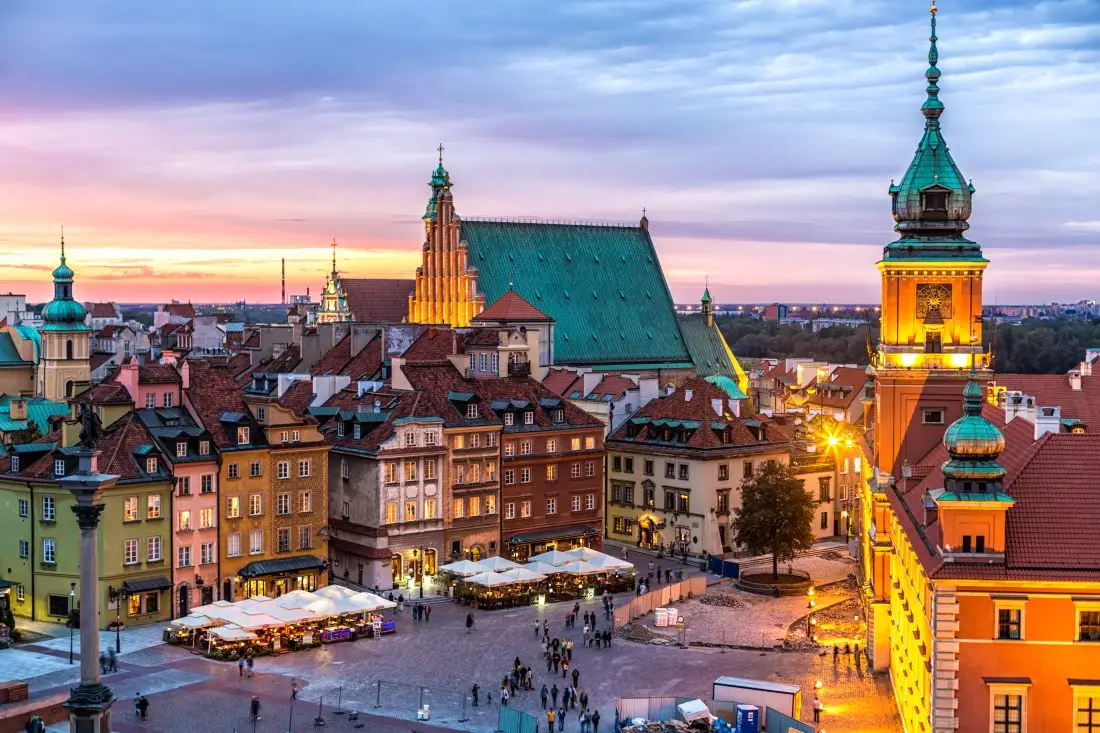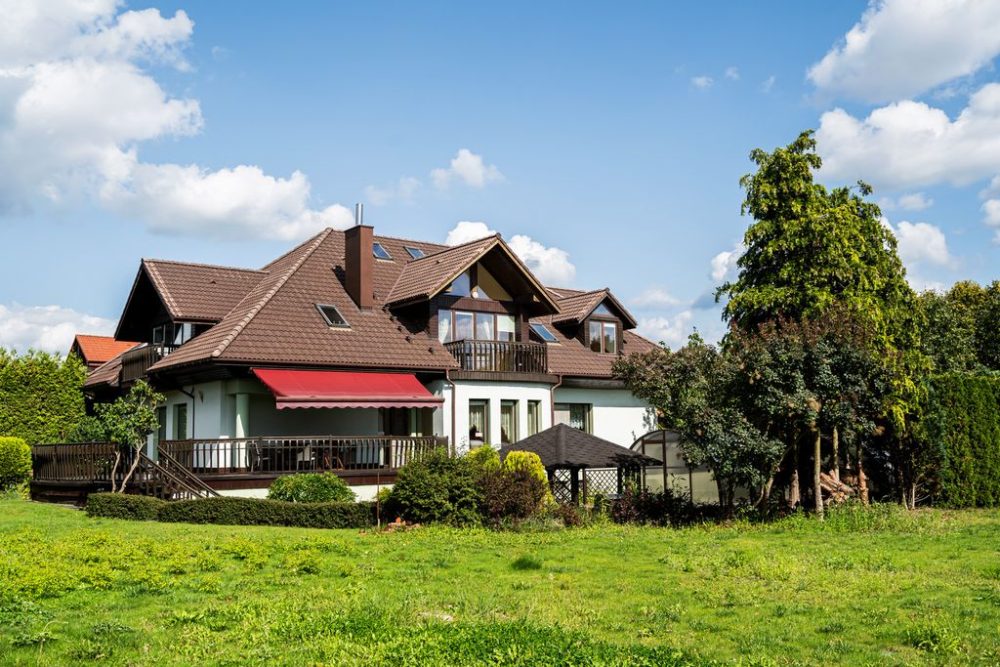There are more and more people wishing to settle in the Polish metropolis, so the demand for housing is constantly growing. Warsaw’s districts for buying property are diverse: from elite neighbourhoods in the centre to promising suburbs with affordable prices. Everyone will find a suitable option.
The growth in the cost per square metre has been observed over the last ten years. According to Polish analysts, the annual increase in property prices is 5-10%. In some districts of the capital the figures are even higher. This is influenced by the developed transport network, modern residential complexes and high standard of living. Where to buy a flat in Warsaw depends on your goals: living, renting or investing.
Warsaw neighbourhoods for buying property
Choosing where to live is a key factor when buying a home. Warsaw districts for buying property vary in terms of prestige, infrastructure, security and cost per square metre. In the centre there are expensive residential complexes and office buildings. Dormitory districts offer comfortable housing at a reasonable price.

In recent years, interest in property in Warsaw has been growing. Flats are bought by locals and foreign investors. When choosing a district, people pay attention to the convenience and travel time to work, the quality of schools and the availability of shopping centres. Prices for housing in the neighbourhoods differ, but you can find an option for any budget.

Some districts of the capital are considered the best for life. They are characterised by convenient infrastructure, good houses and affordable prices. Others attract investors with prospects of price growth and active construction of new objects. The choice depends on the preferences and goals of the buyer: comfortable living, renting or long-term investment.
Warsaw city centre: prestige and high prices
The proximity to business districts and historical sights makes the central districts the most expensive. The average property price here exceeds 20,000 PLN per m². The main offers are concentrated in business class new buildings. The flats here are equipped with smart home systems, underground car parks and security.
Joliboge is an upmarket neighbourhood with history
A neighbourhood with a rich history and unique architecture. Low-rise residential complexes with closed territories prevail here. The cost of housing is 18,000-20,000 PLN per m². Żoliborz is ideal for those who appreciate silence, green areas and a high level of security.
Wola and Mokotów: balancing comfort and accessibility
The neighbourhoods are ideal for working professionals. Developed infrastructure, proximity to the metro and diversity of housing make them attractive for families and investors. Where to buy a flat in Warsaw to combine comfort and affordability? Wola and Mokotów offer flats starting from 12 500 PLN per m².
Prague-Pulnoc and Bemovo: promising areas for investment
These neighbourhoods are under active development. Prague-Pulnoc attracts property developers, while Bemovo remains one of the greenest and most environmentally friendly areas in the capital. The average price of housing here is 10,500-12,000 PLN per m².
Warsaw real estate: prices by neighbourhood
 The cost of housing in Warsaw depends on the region, the age of the house and the type of development. In the centre, prices can reach 20,000 PLN per m², while in new complexes prices start from 15,000 PLN per m². On the outskirts you can find offers for 9,000 PLN per m².
The cost of housing in Warsaw depends on the region, the age of the house and the type of development. In the centre, prices can reach 20,000 PLN per m², while in new complexes prices start from 15,000 PLN per m². On the outskirts you can find offers for 9,000 PLN per m².
Price table by area:
| District | New buildings (PLN/m²) | Secondary (PLN/m²) |
| Centre | 20 000+ | 16 000+ |
| Zolibozh | 18 000+ | 15 000+ |
| Will | 15 000+ | 12 500+ |
| Prague-Pulnotz | 13 000+ | 10 500+ |
| Bemovo | 12 000+ | 9 000+ |
Property in Warsaw for foreigners: what you need to know
Foreign buyers can purchase flats in Warsaw without restrictions. The purchase of houses with land plots requires a special permit from the Polish Ministry of Interior. Owning a flat does not automatically entitle you to a residence permit or a permanent residence permit, but it significantly facilitates the process of obtaining them.
Legal aspects and authorisations
Polish law does not restrict foreigners from buying flats and flats. But buying a private house with a plot of land requires a special permit. The process takes several months and requires proof of connection with Poland. For example: having a business, job or family ties.
Basic requirements for the purchase of real estate by foreigners
In order to buy a flat in Warsaw, you need to fulfil a number of conditions and submit documents:
- passport and identification number (PESEL). The identification number is required for tax operations and transaction registration;
- an open bank account in a Polish bank. A prerequisite for transferring funds and paying for the purchase;
- a notarised contract of sale. The conclusion of the transaction takes place only at a notary, who records the change of ownership in the state register;
- payment of taxes and registration fees. The buyer must pay the civil transaction tax (2% of the property value) and pay the title registration fee.
Additional nuances for foreign buyers:
- Possibility to take out a mortgage: foreigners can obtain a mortgage loan from Polish banks. This requires a stable income and proof of financial solvency.
- Taxes and additional costs: in addition to the main tax, the buyer pays the services of a notary (0.5-1% of the value). Also the registration of the transaction and possible realtor fees.
- Property documents: before buying, it is important to check the history of the flat, absence of debts and arrests on the property.
Overall, property in Warsaw remains an open and promising market for foreigners. Here, buyers can purchase housing with minimal restrictions and favourable conditions.
Reviews about buying property in Warsaw
According to the feedback from owners, buying a home in Warsaw is a profitable investment. Especially in areas with developed infrastructure and the prospect of price growth. The main advantages are noted by investors buying flats for rent. Rental yields average 5-7% per annum.
Disadvantages include high prices in the centre and difficulties with parking. Residents of suburban areas point out the long journey to the centre during rush hours. They compensate for this by the comfort of living.
Which Warsaw neighbourhood should I choose for buying a property?
 The choice of neighbourhood depends on your goals. For a comfortable life, Zolibozh and Mokotów are more suitable. For business and investment, the Centre and Volia are advantageous. If it is important to find affordable housing, you should pay attention to Prague-Pulnotz and Bemowo. Warsaw’s neighbourhoods for buying property are diverse. Everyone can find the best option, taking into account their budget and needs.
The choice of neighbourhood depends on your goals. For a comfortable life, Zolibozh and Mokotów are more suitable. For business and investment, the Centre and Volia are advantageous. If it is important to find affordable housing, you should pay attention to Prague-Pulnotz and Bemowo. Warsaw’s neighbourhoods for buying property are diverse. Everyone can find the best option, taking into account their budget and needs.
 en
en  de
de  ar
ar  es
es  nl
nl  hi
hi  fr
fr  it
it  pt
pt  el
el 











